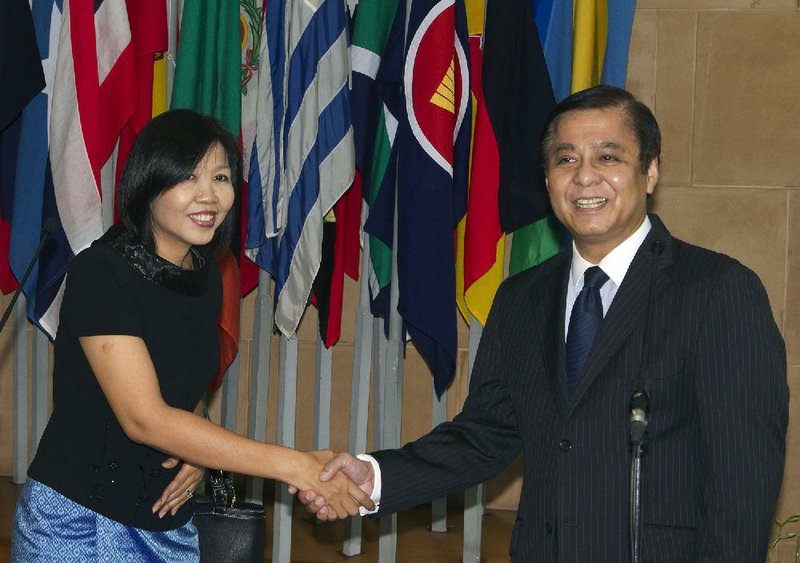BANGKOK -- Thailand said Saturday that it was disappointed with a decision by the U.S. State Department to blacklist it for its failure to do enough to fight human trafficking but vowed it would keep fighting the scourge.
Highlighting trafficking in Thailand's sex, seafood and garment industries, the United States on Friday lowered the Southeast Asian nation to the lowest rank, "tier 3," in its annual assessment of how governments around the world have performed in fighting the flesh trade. The downgrade could exact a reputational cost on Thailand's lucrative seafood and shrimp industries, for which America is a key market.
President Barack Obama has 90 days to determine whether to apply sanctions, which could include blocking various types of aid or withdrawing U.S. support for loans from the World Bank and International Monetary Fund.
Sihasak Phuangketkeow, permanent secretary of Thailand's Foreign Affairs Ministry, argued that Bangkok had stepped up its efforts to combat the trade and hundreds of people had been prosecuted, including state officials.
The U.S. downgrade does "not match the reality or facts regarding the Thai government's" efforts, Sihasak said. "I'd like to reiterate that what we are doing right now, to combat human trafficking, we are doing it because it is the right thing to do. We are adhering to human rights and humanitarian principles. We are not doing it to respond to any ranking of any countries."
Thailand's democratically elected government was overthrown in a May 22 army coup. Sihasak said the junta that now controls the country has made it a "priority to tackle the human trafficking problems."
The downgrading of Thailand to tier 3, which signifies that a country isn't fully complying with minimum standards for eliminating trafficking, puts it alongside countries such as Iran, North Korea, Russia and Saudi Arabia. A total of 23 countries received that ranking, including neighboring Malaysia.
The report estimated that there are tens of thousands of trafficking victims in Thailand, the majority of which are migrants from neighboring countries who are forced or defrauded into working against their will in the sex trade, commercial fishing, garment production, factories and domestic work. Other victims are forced to beg on the streets.
Some migrants remain at sea for several years, working 18 to 20 hours per day for seven days a week, facing threats and beatings.
The report also noted that civilian and military officials reportedly profit from the smuggling of minority Muslims from Burma and Bangladesh, and their sale into forced labor on fishing vessels.
Malaysia's demotion to tier 3 returned it to where it had been ranked from 2007 to 2009. That earlier downgrade had prompted the government to step up enforcement of an anti-trafficking law to prosecute traffickers and protect victims, helping lift the country to tier 2 in 2010. There was no immediate response from Malaysia's government, and home ministry officials couldn't be immediately reached for comment.
The State Department last year had put both Malaysia and Thailand on notice that they could be demoted unless they boosted anti-trafficking efforts.
American officials had voiced concern at the time over Thai authorities' treatment of Burma migrants as well as "very grave" problems with Malaysia's treatment of trafficking victims, who are held in prison-camp type conditions before deportation. Malaysia has become a magnet for people from impoverished or war-torn places looking for work or seeking a transit point to enter other nations, such as Australia.
Information for this article was contributed by Eileen Ng of The Associated Press.
A Section on 06/22/2014


